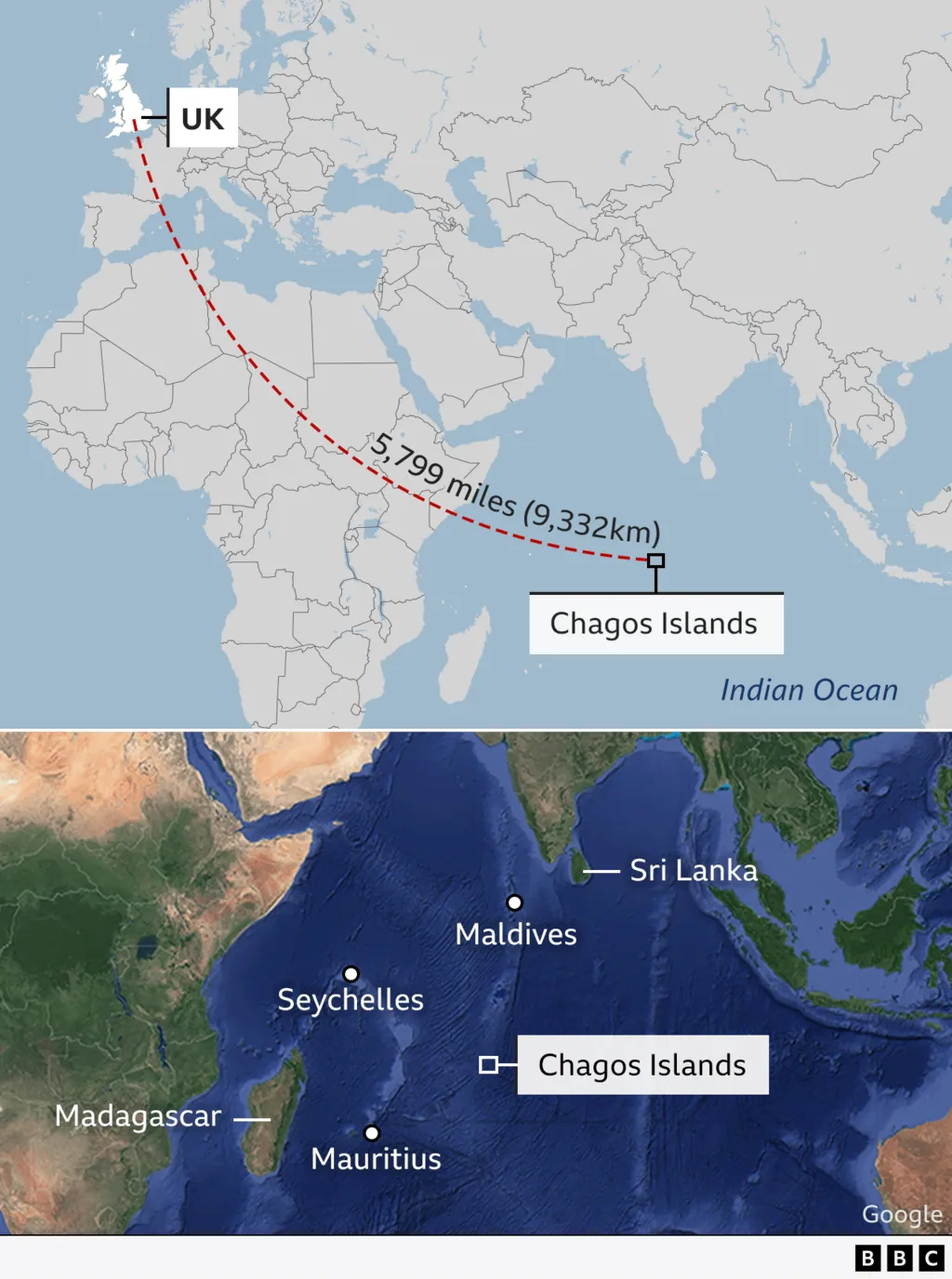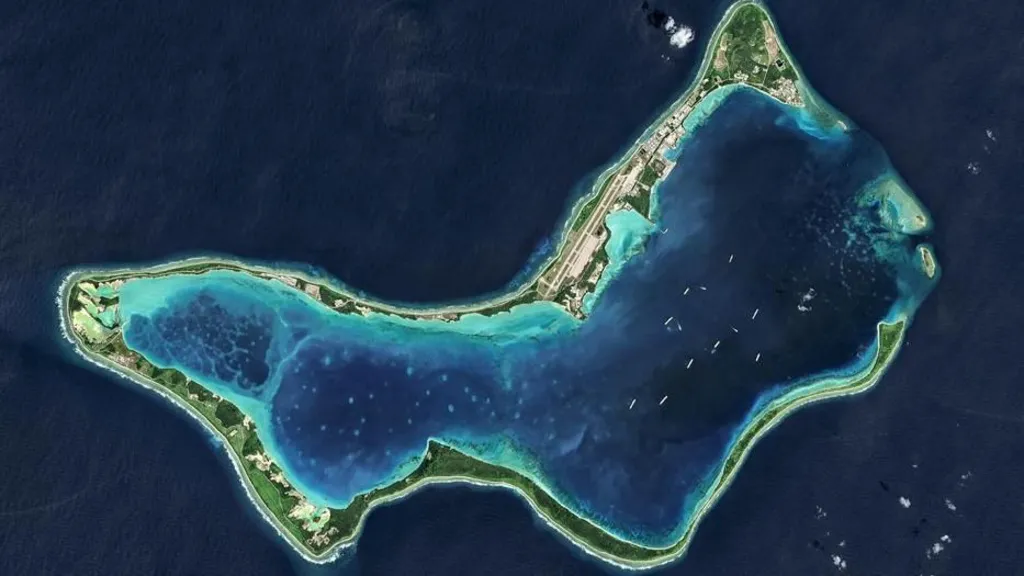UK Denies Facing Hefty Payouts in Controversial Chagos Islands Deal
The British government has firmly denied recent claims that it could face billions more in costs as part of a renegotiated agreement concerning the Chagos Islands. These allegations were brought to light by Mauritius' new Prime Minister, Navin Ramgoolam, who has openly criticized the terms of the initial deal struck in 2022. His assertions that the UK's financial commitment may have doubled have reignited a decades-long dispute over the sovereignty and future of this strategically significant archipelago in the Indian Ocean.
A Deal Under Scrutiny
In October 2022, the UK announced its intention to transfer sovereignty of the Chagos Islands, also known as the British Indian Ocean Territory, back to Mauritius. However, the agreement included provisions for the UK to retain a 99-year lease on Diego Garcia, the largest island in the chain and home to a vital UK-US military base. This base has long been considered a cornerstone of Western security strategy in the Indian Ocean, acting as a hub for US and UK military operations in the region.
Mauritius initially agreed to these terms, but the arrival of Navin Ramgoolam as Prime Minister brought a shift in the country's stance. In a recent address to Mauritian lawmakers, Ramgoolam criticized the previous agreement, calling it a "sell-out" and claiming that the financial arrangements were inadequate. He announced that under renegotiated terms, payments from the UK would be linked to inflation and frontloaded to provide Mauritius with more immediate benefits.
 While Ramgoolam did not disclose exact figures, reports in The Times suggested the payments could rise from £9 billion to £18 billion. The UK government, however, has dismissed these figures as "inaccurate and misleading."
While Ramgoolam did not disclose exact figures, reports in The Times suggested the payments could rise from £9 billion to £18 billion. The UK government, however, has dismissed these figures as "inaccurate and misleading."
A spokesperson for the UK Foreign Office stated, “The UK will only sign a deal that is in our national interest. The numbers being quoted are completely speculative and do not reflect the actual terms of the agreement.”
Why the Chagos Islands Matter
The Chagos Islands are more than just a remote chain of atolls. Their geostrategic location in the middle of the Indian Ocean has made them invaluable for military purposes. Since the 1970s, Diego Garcia has hosted a UK-US military base that serves as a key launch point for operations in the Middle East, Africa, and Asia. The base has been used for reconnaissance, logistics, and even airstrikes during conflicts such as the Gulf War and the Iraq War.
For Mauritius, however, the Chagos Islands represent more than strategic value—they are a symbol of national sovereignty and justice. The UK seized control of the islands from its then-colony Mauritius in 1965, evicting over 1,000 islanders to make way for the military base. Many of these displaced Chagossians and their descendants now live in Mauritius, the Seychelles, and the UK. Their struggle for the right to return to their homeland has become intertwined with Mauritius’ broader claim to the islands.
In 2019, the International Court of Justice (ICJ) issued an advisory opinion stating that the UK’s administration of the Chagos Islands was unlawful and called for the territory to be returned to Mauritius. This ruling, while not legally binding, has intensified pressure on the UK to resolve the issue.
Ramgoolam’s Criticism of the Original Deal
Speaking in Mauritius’ parliament, Ramgoolam detailed his objections to the 2022 agreement. He argued that the financial terms were insufficient and poorly negotiated, leaving Mauritius vulnerable to the impacts of inflation.
“We have to be inflation-proof. What’s the point of getting money and then having half of it by the end? This is what would happen. We have made the calculations,” Ramgoolam said.
He also highlighted changes in the renegotiated deal, including higher upfront payments and revised terms that allegedly limit the UK’s ability to unilaterally extend the lease on Diego Garcia for an additional 40 years.
“The package was very badly negotiated. That’s a fact,” he asserted, adding that his government was committed to securing a fairer agreement for Mauritius.
UK Pushback and Domestic Criticism
The UK government has been quick to refute many of Ramgoolam’s claims. In addition to denying any changes to the lease extension terms, officials have emphasized that negotiations are ongoing and that no final agreement has been reached.
Despite these assurances, the deal has faced significant criticism from within the UK. Some senior government figures have described the agreement as “mad” and “impossible to understand,” questioning why the UK would commit billions of pounds to relinquish control of the islands.
“At a time when there is no money, how can we spend billions of pounds to give something away?” one senior source reportedly said.
The lack of transparency surrounding the negotiations has further fueled criticism. Shadow Foreign Secretary Dame Priti Patel accused the government of sidelining Parliament and the public, arguing that Mauritius appears to have more information about the deal than UK taxpayers.
“If this is such a good deal, why is the government not being honest about it?” she asked during an appearance on BBC Radio 4.
Reform UK leader Nigel Farage also weighed in, warning that ceding sovereignty over the Chagos Islands could undermine the UK’s strategic value to the United States.
US Interests and Global Implications
The Chagos deal is not just a bilateral issue between the UK and Mauritius—it has significant implications for the United States. The Diego Garcia base is a critical asset for US military strategy in the Indo-Pacific, and any changes to its lease arrangements could have ripple effects on US operations in the region.
US Secretary of State Marco Rubio has previously expressed concerns about the deal, citing Mauritius’ economic ties with China. As China’s influence in the Indian Ocean grows, there are fears that a weakened UK-US presence in the region could create opportunities for Beijing to expand its strategic footprint.
The US position has been a key factor in the negotiations. Ramgoolam himself acknowledged this, stating that it would be “better” for the US administration to review the deal before it is finalized.
Progress on the agreement was reportedly delayed during Donald Trump’s presidency, as the UK awaited input from his administration. Environment Secretary Steve Reed admitted that the government was “still waiting” for the US view, which he said would “inform the negotiations.”
The Chagossian Perspective
Amid the political and strategic wrangling, the voices of the Chagossian people have often been overshadowed. The original inhabitants of the Chagos Islands were forcibly removed from their homes in the late 1960s and early 1970s, an act that many have described as a grave injustice.
Today, the Chagossian diaspora is divided on the issue. Some support Mauritius’ claim to the islands, hoping it will lead to their eventual return. Others fear that Mauritius is more interested in the islands’ economic and strategic value than in the rights of the Chagossian people.
Many have also criticized the lack of consultation during the negotiations. Olivier Bancoult, a prominent Chagossian activist, has called for greater transparency and inclusion in the decision-making process.
Looking Ahead
As negotiations continue, the fate of the Chagos Islands remains uncertain. For Mauritius, the renegotiated deal represents an opportunity to address historical injustices and secure a more favorable arrangement for its people. For the UK, it is a delicate balancing act between honoring its commitments to Mauritius and safeguarding its national and strategic interests.
The deal’s implications extend far beyond the Indian Ocean. With the US closely monitoring the situation and China’s influence in the region growing, the Chagos Islands have become a focal point in the broader struggle for power and influence in the Indo-Pacific.
Ultimately, the resolution of this issue will require not only political and strategic considerations but also a commitment to justice and fairness for the Chagossian people. As one of the most contentious territorial disputes in modern history, the Chagos saga is far from over.



0 Comments